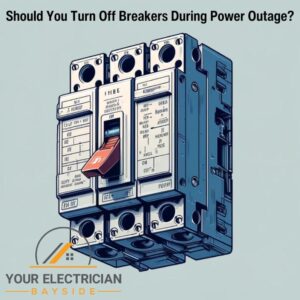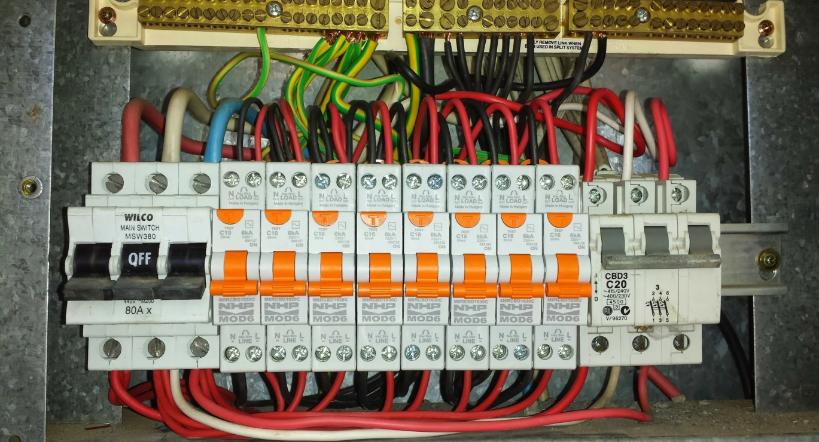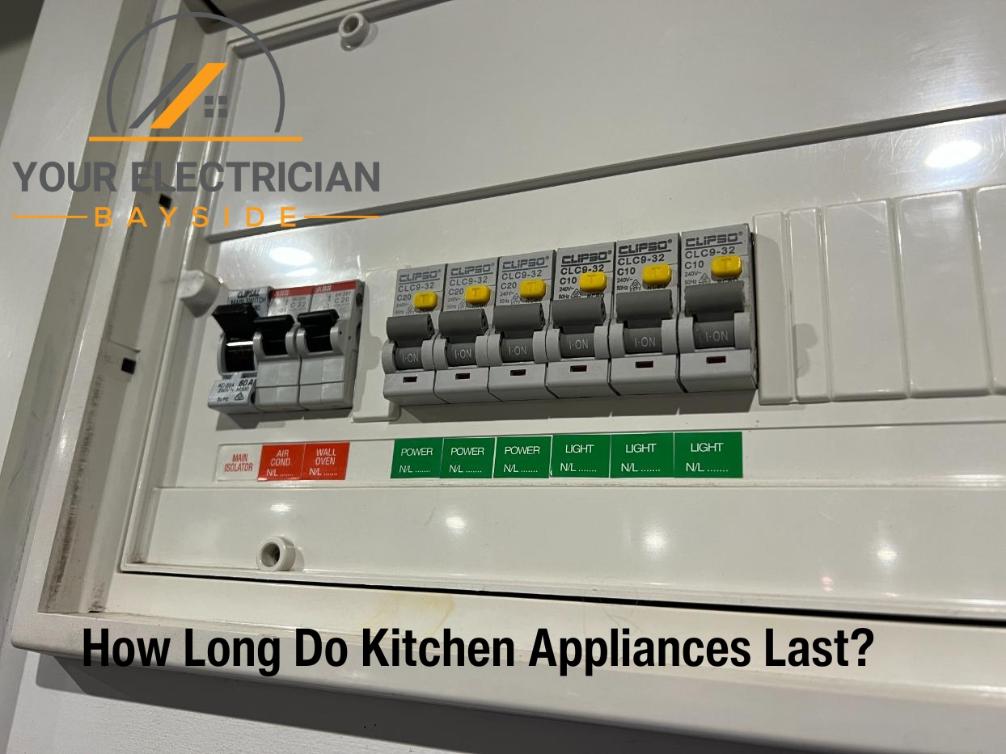Yes, you should turn off breakers during a power outage to prevent power surges from damaging your appliances. It also reduces the risk of electrical fires while helping you pinpoint potential electrical system problems.
Professional electrical contractors know that switching off breakers during a power outage is vital to maintaining the efficiency and safety of an electrical system.
In this post, we’ll discuss the crucial steps to take during a power outage, its common causes, and how you can prepare for it.
3 Crucial Steps to Do During a Power Outage
The 3 crucial steps to do during a power outage are to confirm the outage, disconnect appliances, and use a torch for lighting. Let’s take a closer look at each step below.
Step 1: Confirm Outage
Firstly, verify if the power cut is limited to your home or if it’s a neighbourhood-wide issue. Check your circuit breakers to see if they’ve tripped; this could be the cause. If it’s just your residence, contact your local electricity provider. However, if it’s a broader outage, it’s likely already being addressed.
Have you ever asked the question, “Why does my breaker keep tripping with nothing plugged in?” Read our blog to learn the answer.
Step 2: Disconnect Appliances
Once you’ve ascertained the outage, it’s wise to unplug electrical devices. This action prevents potential surge damage when power returns. Large appliances and sensitive electronics are particularly vulnerable.
You can leave one light on as an indicator for when the electricity is restored.

Step 3: Use a Torch for Lighting
During an outage, it’s essential to use torches rather than candles to reduce fire risk. Ensure your torch is easily accessible, and check its batteries regularly.
This approach provides safe illumination and helps prevent accidents in the dark. Keep additional batteries handy, just in case.
3 Common Causes of a Power Outage
The 3 common causes of a power outage are substation problems, inclement weather, and compromised electrical lines.
- Substation problems: Substation difficulties, ranging from technical failures to maintenance oversights, can disrupt single-phase and three-phase power supply.
- Inclement weather: Bad weather, such as severe storms or lightning strikes, often leads to widespread power outages.
- Compromised electrical lines: Compromised electrical lines, due to events like fallen trees or vehicular accidents, interrupt electricity flow.
Can I Prepare for a Power Outage?
Yes, you can prepare for a power outage by making sure you have a well-stocked emergency kit. This container should have batteries, first aid items, non-perishable food, and torches. It’s also best to regularly check and maintain your home’s electrical system.
Furthermore, you can invest in a backup power source, such as a charged power bank or generator, to power essential devices in case of prolonged outages.




